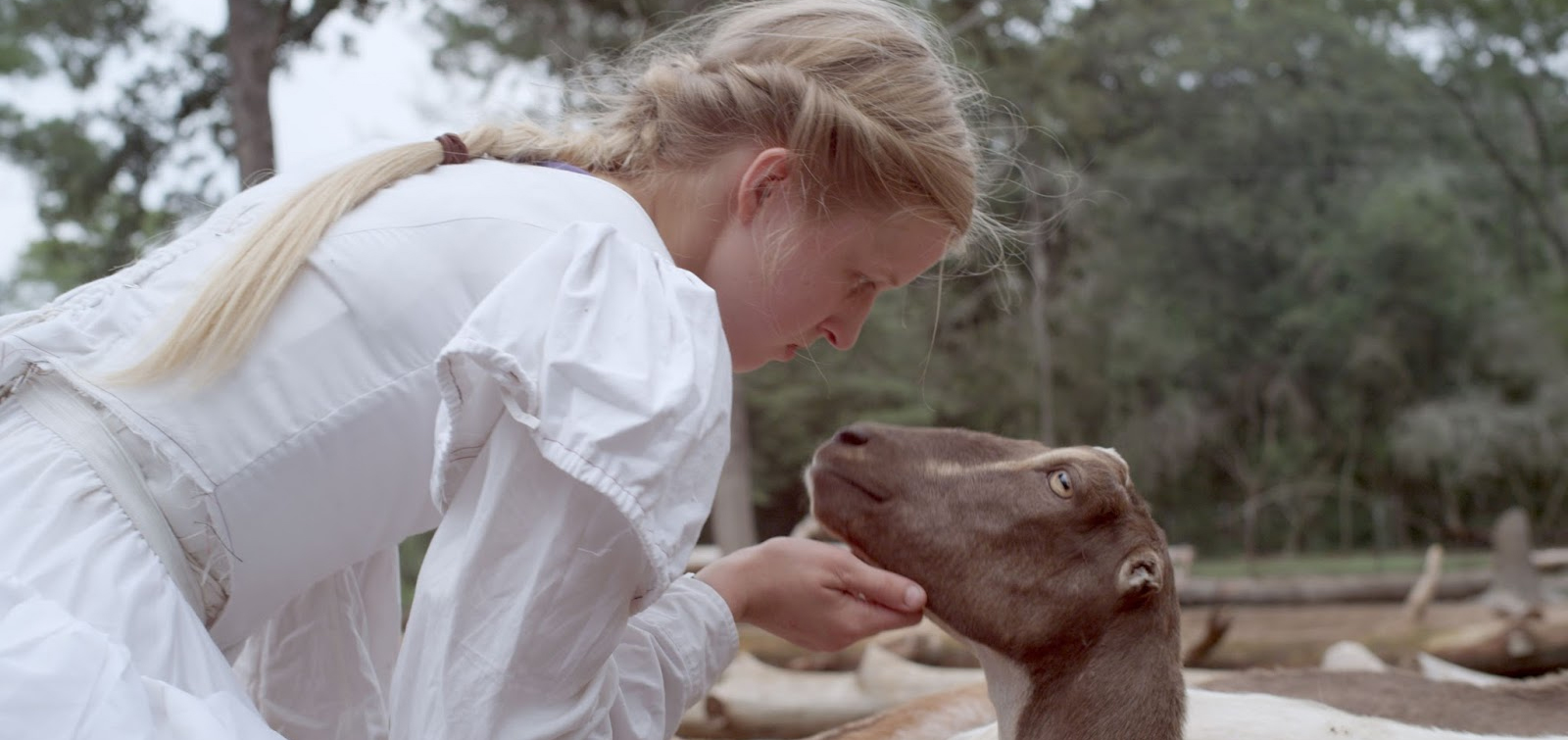
Nothing within this review could be more of a testament to the calibre of filmmaker Roberto Minervini’s Stop the Pounding Heart like the unwavering attention from its audience, despite two inadvertent screening interruptions thanks to the trickiness of digital projection. Twice, the film had to be halted, and twice, we resumed watching. But it was never a question of compelling myself to re-immerse. Minervini’s hybrid documentary – a few among this year’s festival selection, including this year’s festival opener 20,000 Days on Earth – did it for me instead.
This film marks the completion of his ‘Texas trilogy’, following on from The Passage (2011) and Low Tide (2012). Though ostensibly it documents the blossoming, tentative interest between fourteen-year-old Sara and the slightly older Colby, a local rodeo rider, there are greater concepts at play here. The film adopts a meandering stream-of-consciousness structure that depicts everyday, mundane activities rather than some grand narrative arc meant to be as vast and complex as the concepts it handles expertly. Really, these daily preoccupations are emblematic of the greater rhythms of the two teenagers’ lives in rural Texas, and all that that entails.
Christianity, traditional gender roles, and the pervasion of firearms all quietly creep into the picture, but Minervini’s skill lies in making this seem incidental and authentic, rather than deliberately constructed as a ‘portrait’ of Texas. There is no way to know for certain what was scripted and what was not, beyond the use of non-actors playing essentially themselves in fictionalised scenarios. And if that sounds alarming, something more akin to the inane scripted encounters of ‘reality’ television’s The Hills, then don’t let yourself be fooled: the blend of fact and fiction is achieved with a meticulousness that ensures scenes were crafted to bring forth a kind of truth, rather than any kind of revelatory melodrama. The camera itself takes on a fly-on-the-wall, naturalistic quality very familiar to observational documentaries, but transcends the typically voyeuristic feeling of that kind of filmmaking. It becomes invisible, and we become fully immersed.
In fact, the scenes themselves are quiet, often very pensive: Minervini affords his audience a certain space within each frame, each shot, to wonder at the greater forces at play. In this way, it’s closer to something like Apichatpong Weerasethakul’s Uncle Boonmee Who Can Recall His Past Lives (2010). When Sara, the main protagonist whose life is marked up by a diligent and devout Christian upbringing, sits in the dark of her room after cutting off the bottom of her long denim skirt, her inner turmoil is palpable. This second-last scene of the film’s 100 minutes is perhaps the crux of the film’s concern: Sara’s difficulty in reconciling her Christian beliefs and upbringing with other emotions and sensations, including a faint attraction to the less-disciplined (though still Christian) Colby. “We’re all a work-in-progress,” her mother assures her, and this rings truth both of the struggle inherent in both navigating adolescence, as well as a religious faith.
The film relies on this ‘spaciousness’ and the impact of incidental (and often fleeting) visuals and sounds to achieve its emotional realism. Single images are enough to give us more insight than a written paragraph could: Colby doing early morning push-ups as the camera gazes on from higher up, the tattoo declaring ‘Texas Boy’ in gothic script on another local’s back. The entire film lacks a soundtrack, and dialogue is kept minimal and almost never narrative-driven. 1
Minervini’s light touch paints the most delicate yet expressive brushstrokes of Sara’s life (and Colby’s life to a lesser extent). There is no judgment passed on behalf of the filmmaker. In this way it becomes less of a didactic piece on Texas life, than it does an intimate sketch of two young people’s lives within that distinctive environment.
